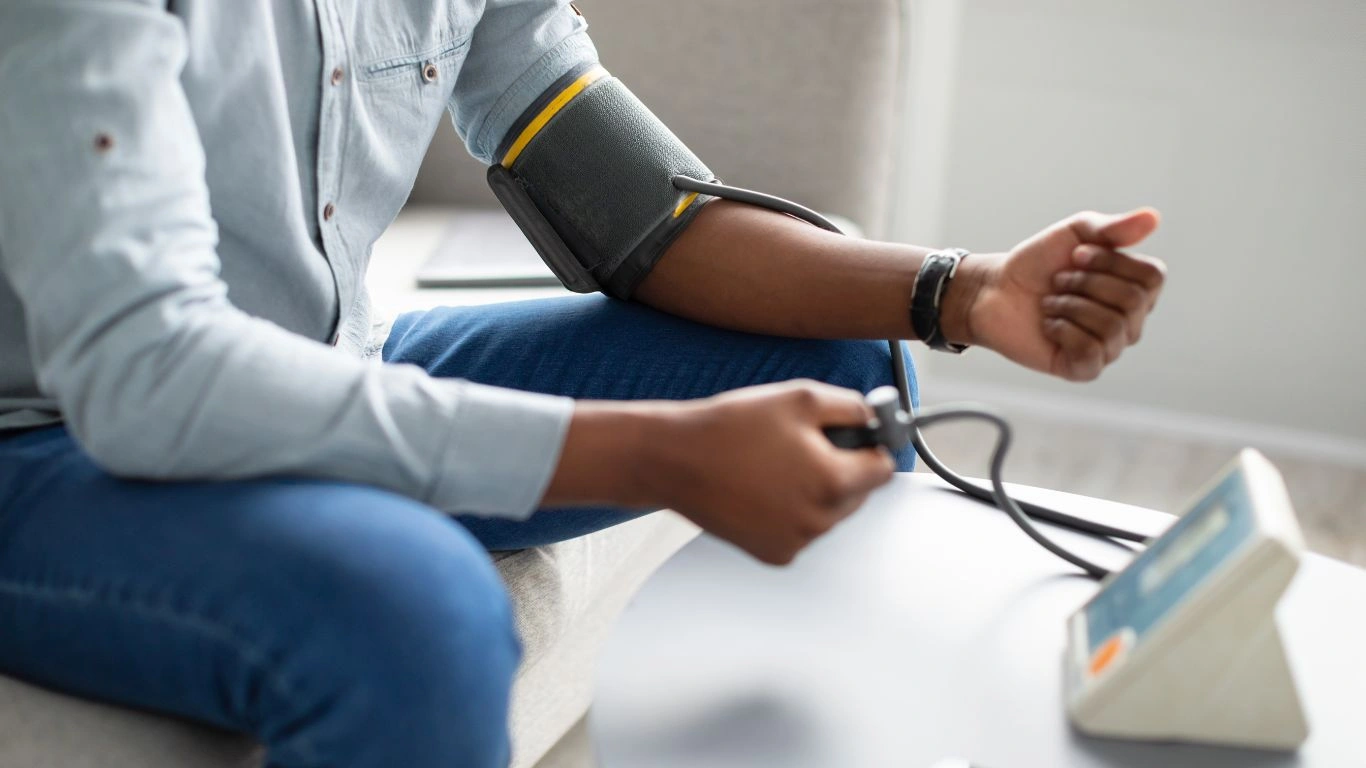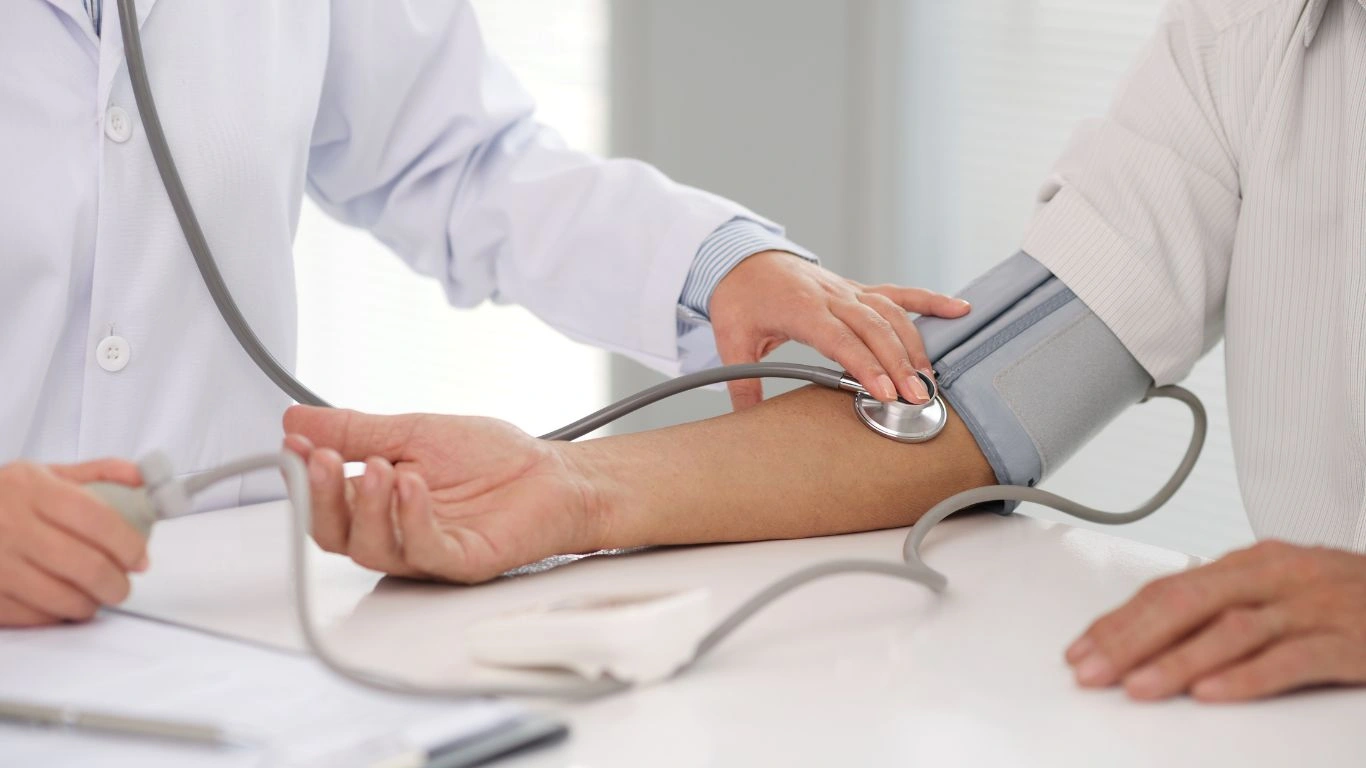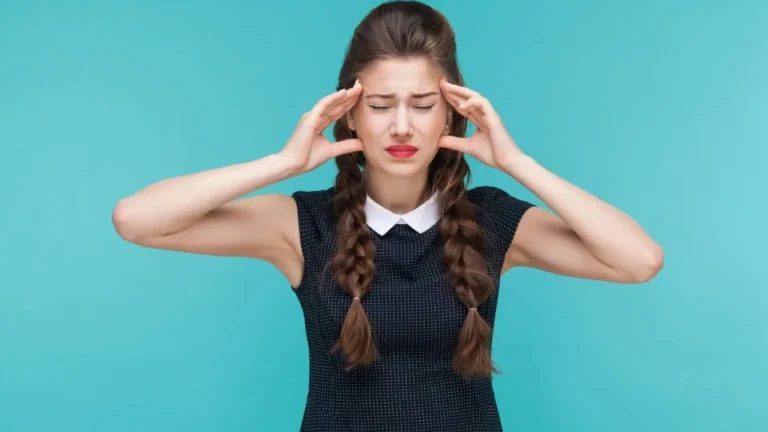Hypertension and Mental Health Effects – A Comprehensive Guide
Ever wondered how hypertension and mental health are connected? It’s not just about physical health; your mind plays a huge role too! Let’s break it all down.

What is Hypertension?
Hypertension is when your blood pressure consistently stays above the normal range (120/80 mmHg). Left unchecked, it can damage your heart, kidneys, and even your brain. But it’s not just about your physical health. The mental side effects? Oh, they’re real and worth talking about.
How Hypertension Affects Mental Health
1. Anxiety and Stress
Chronic high blood pressure can make you feel like you’re in a constant fight-or-flight mode. Your body releases stress hormones like cortisol, which, over time, can increase anxiety levels. Ever noticed your heart racing during a tense moment? Yeah, multiply that by a hundred.
2. Depression
Dealing with hypertension can feel like an uphill battle. The constant worry about your health can lead to feelings of helplessness and sadness, which might spiral into full-blown depression.
3. Cognitive Decline
Long-term hypertension can reduce blood flow to your brain, affecting memory and cognitive functions. Think of it like your brain running on low battery.

How Mental Health Impacts Hypertension
1. Stress Eating and Lifestyle Choices
When you’re stressed, it’s easy to turn to comfort food or skip exercise. Hello, high blood pressure!
2. Sleep Issues
Anxiety or depression can mess with your sleep cycle, and poor sleep can crank up your blood pressure.
3. Substance Use
Some people use alcohol or smoking to cope with mental health struggles, but guess what? Both are major hypertension triggers.
Signs to Watch Out For
Wondering if you’re caught in the hypertension-mental health loop? Keep an eye out for these red flags:
- Persistent fatigue or low energy
- Mood swings or irritability
- Trouble concentrating or remembering things
- Sleep disturbances
- Frequent headaches or chest pain

How to Manage Both Hypertension and Mental Health
1. Stress Management
Deep breathing, yoga, or even just a daily walk can work wonders. Find what chills you out and make it a habit.
2. Healthy Eating
Stick to a DASH diet (lots of veggies, fruits, and lean protein). It’s not just good for your blood pressure; it’s brain food too!
3. Regular Exercise
Moving your body doesn’t just help your heart; it boosts those feel-good endorphins too.
4. Therapy or Counseling
Sometimes, talking to a professional is the best way to untangle the mental knots.
5. Medication
If your doctor prescribes meds for either hypertension or mental health, take them as directed. They’re part of the solution.

Conclusion
Hypertension and mental health are two sides of the same coin. They feed off each other, creating a cycle that can feel hard to break. But with awareness, the right habits, and support, you can manage both and live your best life. It’s all about taking that first step—your mind and body will thank you.
Appendices
FAQs
- Can hypertension cause anxiety? Yes, hypertension can trigger stress and anxiety due to the body’s release of stress hormones.
- Is depression linked to high blood pressure? Absolutely. Chronic worry about health can lead to depressive symptoms, and vice versa.
- How can I manage stress to lower my blood pressure? Try relaxation techniques like meditation, exercise, and healthy eating.
- Can medication for mental health affect blood pressure? Some medications might, so always discuss with your doctor if you’re managing both conditions.
- Are there natural ways to treat both hypertension and mental health? Yes! Diet, exercise, and stress management are powerful tools for both.
References
- American Heart Association. (2023). Hypertension and Mental Health: What You Need to Know. Read Article
- World Health Organization. (2022). The Impact of Hypertension on Global Health. Read Article
- National Institute of Mental Health (NIMH). (2024). Stress and Its Effect on Blood Pressure. Read Article
Disclaimer: This article is for informational purposes only and should not be considered medical advice. Always consult your doctor for a personalized approach to managing your health.

Dr. Gwenna Aazee is a board-certified Internal Medicine Physician with a special focus on hypertension management, chronic disease prevention, and patient education. With years of experience in both clinical practice and medical writing, she’s passionate about turning evidence-based medicine into accessible, actionable advice. Through her work at Healthusias.com, Dr. Aazee empowers readers to take charge of their health with confidence and clarity. Off the clock, she enjoys deep dives into nutrition research, long walks with her rescue pup, and simplifying medical jargon one article at a time.







